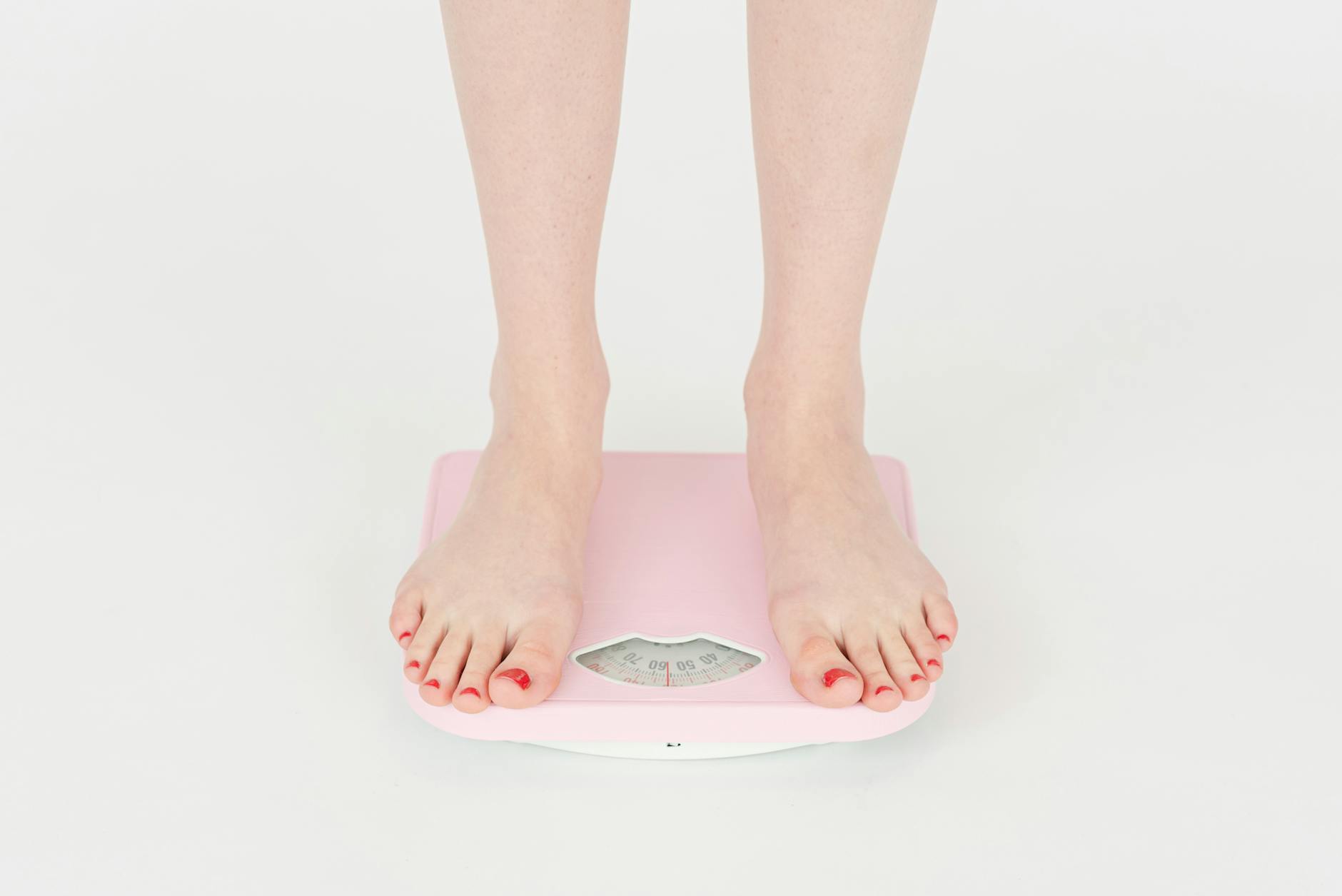Have you ever noticed how a few nights of bad sleep leave you feeling hungry all the time? It’s not just in your head—poor sleep can actually make you gain weight. Science shows that when you don’t get enough rest, your hunger hormones get out of balance, which leads to overeating and craving high-calorie foods. For anyone focused on health and fitness, understanding this link is key. The good news? With small changes to your sleep routine, you can take back control and start feeling better.
How Poor Sleep Affects Your Body
Getting sufficient sleep isn’t just about feeling refreshed; it’s critical to how your body regulates weight. When sleep is compromised, many key processes that help maintain balance go awry. From hormonal disturbances to a sluggish metabolism and uncontrollable cravings, poor sleep sets the stage for weight gain. Let’s break this down.
Hormonal Chaos: Ghrelin and Leptin
When sleep takes a backseat, your hunger hormones take the wheel—and not in a good way. Ghrelin, the hormone that ramps up hunger, increases with poor sleep. Meanwhile, leptin, the hormone that signals fullness, decreases. Think of ghrelin as the gas pedal for appetite and leptin as the brakes. Less sleep means the gas pedal gets stuck, while the brakes fail.
What’s the result? You feel hungrier, even if your body doesn’t need the extra calories. Chronic sleep deprivation creates this imbalance, making it easier to overeat and harder to turn down tempting snacks. Research has shown that acute sleep deprivation can significantly reduce leptin levels and elevate ghrelin levels.
Metabolism Slowdown: Burning Fewer Calories
Ever feel sluggish after a bad night’s sleep? That’s not just mental fog—your metabolism slows down too. Sleep deprivation suppresses your resting metabolic rate (RMR), which is the number of calories your body burns at rest. A lower RMR means your body needs fewer calories, so extra food gets stored as fat, making weight management more difficult.
Additionally, poor sleep affects how your body metabolizes food, impairing its ability to efficiently break down fats. Studies suggest that a sleep deficit can even reduce fat oxidation. This creates a double hit: your metabolism slows down, but your body’s fat-storage mode kicks into high gear. Learn more about the connection between sleep deprivation and slowed metabolism.
Cravings for High-Calorie Foods
If you’ve ever craved pizza or doughnuts after a sleepless night, there’s science behind it. Lack of sleep messes with your brain’s reward centers, making calorie-dense foods harder to resist. The less sleep you get, the more your brain leans toward indulgent options like chips, candy, and fast food.
Why does this happen? Sleep deprivation lowers impulse control, making it tougher to say “no” to unhealthy choices. It also increases the production of endocannabinoids—the same chemicals that might give you the “munchies.” This combination leaves you wanting food that’s high in sugar, fat, or both. Check out this study on how sleep deprivation fuels cravings for junk food.

Photo by Niels from Slaapwijsheid.nl
The Long-Term Effects of Chronic Sleep Deprivation on Weight
When sleep deprivation becomes a constant part of life, the effects go far beyond temporary fatigue or grogginess. It disrupts critical bodily functions that regulate weight, mood, and overall well-being. Chronic poor sleep isn’t just a nighttime issue—it’s a 24/7 challenge that significantly impacts your body. Here’s how sleep loss influences weight and health in the long term.
The Link Between Short Sleep Duration and Obesity
Did you know that sleeping fewer than seven hours regularly can increase your risk of obesity? Research consistently shows that sleep deprivation alters hormone levels regulating hunger and fullness. A lack of sleep spikes ghrelin, the hunger hormone, while reducing leptin, the satiety hormone, leading to overeating. Over time, this hormonal imbalance contributes to weight gain.
For instance, a study revealed that individuals sleeping less than seven hours were 1.57 times more likely to develop obesity than those with adequate rest. This adds to the mounting evidence highlighting the direct connection between sleep and weight control. Furthermore, sleep-deprived individuals often crave foods high in sugar and fat, adding fuel to an already dangerous cycle. If you’re interested in the science behind this, studies like this one delve into the numbers and risks.
 Photo by Niels from Slaapwijsheid.nl
Photo by Niels from Slaapwijsheid.nl
Vicious Cycle: Poor Sleep, Less Exercise
A lack of sleep doesn’t just make you tired—it zaps your energy and motivation to stay active. Think about the last time you didn’t sleep well. Hitting the gym or going on a run likely didn’t seem appealing, right? This reduced physical activity leads to lower calorie burn, combined with the tendency to overeat junk food after poor sleep.
What’s worse is this forms a feedback loop: Poor sleep causes weight gain, which then makes exercising harder due to fatigue and potential joint stress, further perpetuating the problem. A study from Harvard Health suggests that even a few nights of missed sleep can disrupt physical activity patterns, showing how quickly the cycle begins.
Weight vs. Health: More Than Just Calories
It’s not just about the scale. Long-term sleep deprivation takes a toll on your overall health, not just your weight. Chronic fatigue dampens your energy levels, complicating everyday tasks. It can also cause mood instability, irritability, and stress, which have indirect effects on unhealthy food choices or missed workouts.
Additionally, research points to the health risks that come with prolonged sleep loss, including increased chances of developing high blood pressure, diabetes, or heart disease. The impact goes far beyond calories; insufficient sleep strains your body on multiple levels. To learn more about these broader effects, this resource from Cleveland Clinic outlines common issues caused by lack of rest.
When sleep is disrupted long term, it’s like having a domino effect—your body faces a cascade of challenges that affect both weight and general wellness.
Practical Steps to Improve Sleep and Manage Weight
Improving your sleep can have a powerful impact on your overall health, especially when it comes to managing weight. Poor sleep affects hormones tied to hunger and metabolism, making weight control more challenging. The good news? By adopting a few targeted habits, you can set yourself up for restful nights and better weight management. Here’s how to get started.
Establish a Consistent Sleep Schedule
Your body thrives on routine, especially when it comes to sleep. Going to bed and waking up at the same time every day helps regulate your body’s internal clock, also known as your circadian rhythm. This consistency can improve the quality of your sleep and reduce disruptions during the night.
To make this work:
- Pick a bedtime and wake-up time that allows you 7-9 hours of sleep.
- Stick to your schedule every day, even on weekends.
- Use an alarm if necessary, but try to let your body wake up naturally once you establish the habit.
According to the Mayo Clinic, maintaining a sleep routine reduces the odds of sleep imbalance, which can have far-reaching effects on appetite and energy.
Create a Relaxing Sleep Environment
Is your bedroom set up for relaxation? A chaotic or uncomfortable sleep environment can make it difficult to wind down at night. By tweaking a few things, you can transform your bedroom into a sanctuary for rest.
Here’s what helps:
- Reduce light: Use blackout curtains or an eye mask to block out light.
- Minimize noise: Consider white noise machines, earplugs, or a fan for a more peaceful atmosphere.
- Comfortable bedding: Invest in a high-quality mattress and pillows that suit your preferences.
A calming setup reminds your brain that it’s time to relax. When your surroundings are inviting, falling asleep naturally becomes easier.
 Photo by SHVETS production
Photo by SHVETS production
Limit Caffeine and Screen Time Before Bed
Caffeine and blue light are two major sleep disruptors that people often overlook. Although that late afternoon coffee or bedtime scroll through Instagram might seem harmless, they can sabotage your ability to rest.
Try these simple adjustments:
- Avoid caffeine after 2 p.m. to allow its effects to wear off before bedtime.
- Implement a “screen-free hour” before bed. Use this time for reading, meditating, or journaling instead.
- Use blue light-blocking glasses or enable night mode on your devices if screen time is unavoidable.
Blue light suppresses melatonin, your body’s sleep hormone. For better results, focus on habits that help your brain wind down, preparing you for a restful night. Learn more about how blue light impacts your sleep at Sleep Foundation.
Incorporate Physical Activity Into Your Day
Consistent exercise doesn’t just keep your body fit—it also improves sleep. Even light physical activity during the day reduces stress and helps you fall asleep faster. Plus, exercising boosts energy during the day, making you less reliant on stimulants like caffeine.
Some practical ways to fit movement into your daily routine:
- Go for a quick walk during lunch breaks.
- Try yoga or stretching in the evening to relax tense muscles.
- Aim for at least 150 minutes of moderate-intensity aerobic activity per week, as recommended by the CDC.
Even a small commitment to staying active makes a noticeable difference in your sleep and weight management efforts.
Mindful Nutrition for Better Rest
What you eat can significantly influence how well you sleep. Nutrient-rich foods can promote relaxation, while heavy, greasy meals can disrupt your rest. Simple nutrition choices can improve both your sleep and weight goals.
Consider these tips:
- Magnesium-rich foods: Try almonds, spinach, and bananas to help relax your muscles and mind.
- Avoid heavy meals late: Large portions before bed can cause indigestion, keeping you awake.
- Herbal teas: Chamomile or peppermint tea can encourage relaxation in the evening.
Small changes to your diet can aid your overall sleep cycle, making it easier to stay focused on your weight-loss goals. For more details on how food and sleep connect, check out this guide on Healthline.
Conclusion
Sleep and weight management are closely linked, and improving your sleep habits can be a game-changer for your health. From stabilizing hunger hormones to boosting energy levels, better sleep sets the foundation for sustainable weight control.
Start small—create a consistent sleep schedule, optimize your environment, and cut out late-night screen time. These changes can help you break the cycle of poor sleep and weight gain.
Your health starts with rest. Don’t underestimate the power of quality sleep—it’s your secret weapon for a healthier, happier you. What will you try first?








